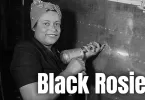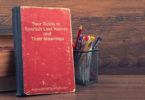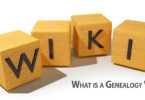If you have African-American ancestry, you should know about and make use of the Freedmen’s Bureau records in your genealogy research. This is a helpful tool like no other, and it can allow you to bring your family tree back many more generations in North America than you may have thought possible. It is a totally unique resource; nothing like it exists anywhere else in the pre-20th-century records of the Federal Government. If you have not used these records before, or have heard of them but don’t know how to access them or what they can do for you, read on because this is information you need to enhance your family tree.
After the Civil War ended, there were millions of formerly enslaved people who found themselves free, but without any direction or idea of what to do or where to go next. The Bureau of Refugees, Freedmen, and Abandoned Lands, which was also called the Freedmen’s Bureau, was established to assist these former slaves in establishing themselves in the southern states and in Washington, D.C. It also helped some impoverished Caucasians in the south, as well. The Bureau assisted people from 1865 to 1872.
The Freedmen’s Bureau did many things for the former slaves. It was kind of an all-purpose bureau of the Federal government, dedicated to helping a particular group of people. Some of the things the Bureau did include:
- Providing food and clothing
- Assisting in locating family members (such as ones who had been sold during slavery)
- Legalizing marriages (as slaves were not allowed to legally marry, though many had their own ceremonies to commit to each other)
- Looking for and even providing employment
- Providing lawyers
- Operated hospitals
- Operated temporary housing camps
- Investigated racially based confrontations
- Secured back pay for African-American soldiers and sailors and their heirs
- Secured bounty payments and pensions for military service
- Promoted education
- Settled freed former slaves on abandoned or confiscated lands
The records of the Freedmen’s Bureau are available on microfilm, and the public can view them in person at the National Archives in Washington, D.C. Some of the records have been digitized and indexed, and are available on genealogical websites.
The records that are available, such as marriage records, medical records, and local census records, all give the descendants of freed slaves the full names of their ancestors and even the names of the former owners of those ancestors. This provides invaluable information when researching formerly enslaved ancestors. Knowing their names and the names of their former owners give descendants new and targeted places to search for their family history.
Some of the information in these records can be quite detailed, as well, providing descendants of former slaves with personal information about the lives of their ancestors, and even their personalities. Most family historians want to know what their ancestors were like as people, and these records can provide that information in a way few other record sources can do.
In records from the Bureau, such as records of military service, school records, food rations, and marriages, intimate details of the lives of ancestors emerge. The type of details, and how much information is included, varies greatly from record to record and place to place. While a marriage record may include information on previous relationships, the number of children already born to each partner, and the race of each partner, others may only include names, or names, ages, and birthplaces. Still, as anyone with African-American ancestry knows, any information is better than none, and even the tiniest bit can give a clue as to where to search next to put the next branch on the family tree.
Online records that have been digitized and indexed can be found on FamilySearch.org and on DiscoverFreedmen.org. Currently, there are 1.8 million names indexed, thanks to a year-long Freedmen’s Bureau project by FamilySearch begun in 2015. The project was done in conjunction with the National Archives, the Smithsonian, and the Afro-American Historical and Genealogical Society.
The Freedmen’s Bureau Transcription Project is now working on the digitized records done by FamilySearch, with the goal of indexing online every word on every digitized document in the collection. Like the initial digitizing project, the transcription project is being done by volunteers who consider family history to be important. Eventually, the goal is to have all of the Freedmen’s Bureau records at the National Archives digitized, transcribed, indexed, and placed online for anyone with African-American ancestry to view and use in their genealogical research.
One of the interesting things about the Freedmen’s Bureau records is that it includes the names of not just men, which was typical for other resources of the mid to late 19th century. It also includes the names of women and children. Because freed slaves were such a poorly documented group, the inclusion of the names of everyone the Bureau assisted is invaluable information. Those names may lead a genealogist to other names in the family tree, and the records on which the names are included may also have the names of relatives of those people, which provides another avenue of research.
The Freedmen’s Bureau records not only provide a crucial source of information to descendants of formerly enslaved people, but it also gives the general public an excellent, first-hand account of the United States during the period of Reconstruction after the Civil War. It is generally not a well-documented period, so this collection provides both historical and genealogical information not available anywhere else.
Because these records are available for free, whether you go to the National Archives to view them in person or search through them online on FamilySearch or another website, the Freedmen’s Bureau records are easy to use. The idea was to make them accessible by everyone, and they are. If you have not yet used these records in your genealogical research, you may be pleasantly surprised by how much they can add to the story of your family. Try them and see for yourself.






